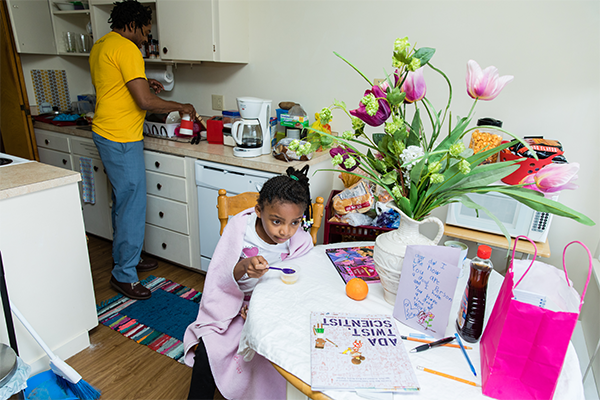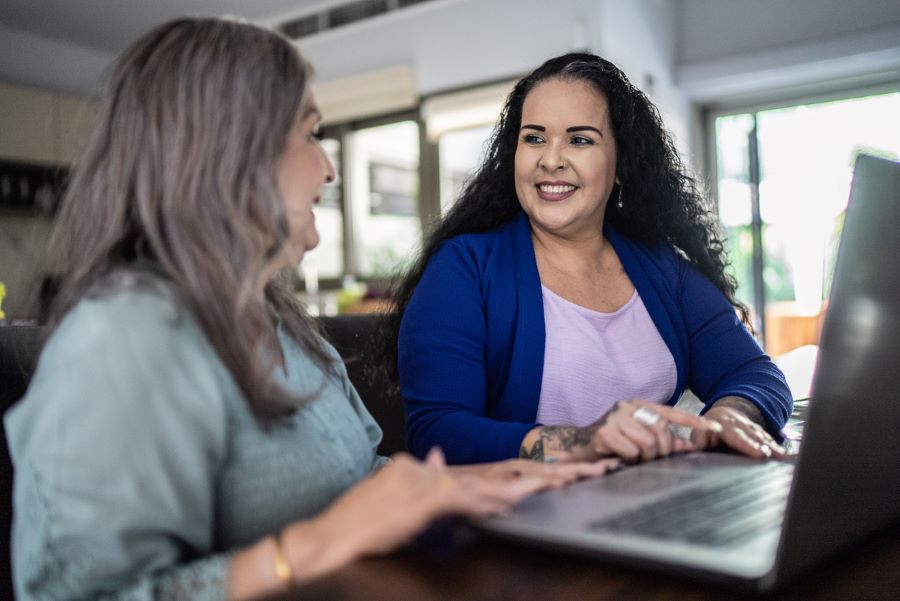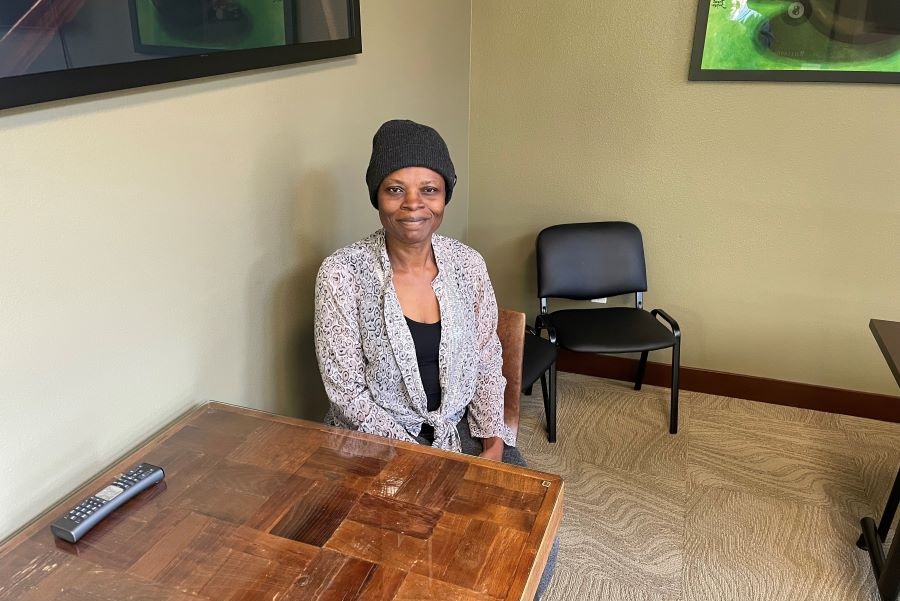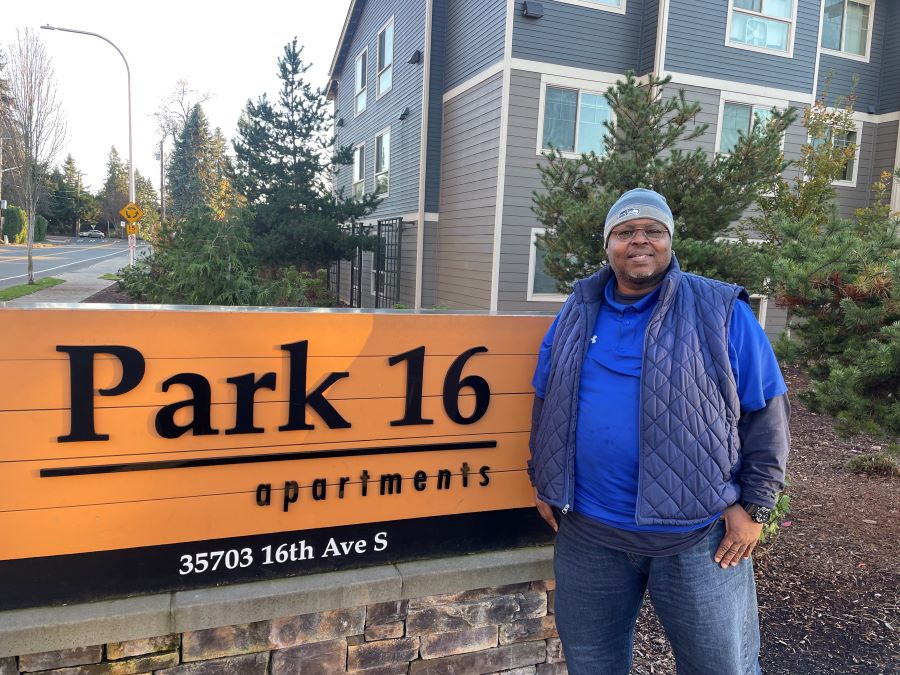Keeping People in Their Homes.
Most households fall behind in rent due to job loss or illness, because life happens. But what if we stopped people from losing their homes in the first place? Can that keep people, families, and our communities stable? At United Way, we know it can. That’s why our primary efforts are in homelessness prevention through our Home Base program.

Our two vital tools to prevent homelessness are rental assistance and eviction prevention. Home Base does both. We partner with the Housing Justice Project to provide pro bono legal assistance, flexible funds, and case management to halt evictions and create a sustainable plan to keep people stably housed for the long term.
At a Glance

Disbursing about $1 million a week in rental assistance with partner agencies for much of 2023

Distributed over $200 million in rental assistance dollars to over 28,000 households since 2020

Last year, more than 4,800 households provided with rental assistance.

Many received up to 9 months of back rent paid to landlords and up to 3 months future rent to ensure stability

Over 72% of those households served are Black, Indigenous, and other people of color to address racial inequities in housing access
Meeting the Need
As rents continue to climb and wages show no sign of keeping up with inflation, we are stepping in to alleviate our region’s homelessness crisis by providing resources to help our neighbors.
According to Seattle/King County Public Health data, nearly 10% of adults in King, Pierce, and Snohomish counties were behind on their housing payments. Among Black and low-income households, it was 25%. Because affordable housing is so scarce, many of them spend more than 30% of their income on rent, with barely anything left for other necessities like food, healthcare, or emergencies.
Public Health data also shows that housing assistance was the most common request among calls made to the 2-1-1 resource line between April 2020 and May 2022, with an average of 573 calls per week.
The shock of the pandemic brought it with unprecedented (and overdue) Federal funding for housing stability. Thanks to the infrastructure we already had in place through Home Base, King County transferred the administration of the King County Eviction Prevention and Rent Assistance Program to United Way, allowing us to distribute rental assistance dollars—over $1 million each week—quickly and effectively to tens of thousands of people who needed it.
Since late 2020, we’ve distributed over $200 million in rental assistance dollars to over 28,000 households–and the buck doesn’t stop there. We continue to prevent eviction and housing instability across King County by coordinating funding from other public sources like the King County Veterans, Seniors and Human Services Levy (VSHSL), Keep King County Housed, and City of Seattle Community Development Block Grant (CDBG).
“Home Base, our housing security program, was possibly the first time we saw eviction prevention money in our community. And then we saw incredible COVID-19 relief funds. But it will never be enough unless we talk about it, bring people into the conversation to let them know avenues like this exist. And knowing we’re building toward a system like that? That’s what brings me to work every day.”
—Jake Janesch, Sr. Program Manager, Rental Assistance & Homeless Prevention at United Way of King County
How It Works
The need for rental assistance remains high. While federal relief dollars have ended, we’re continuing to distribute rental assistance with state funds secured through our advocacy efforts in partnership with King County. We also support tenants in eviction court to keep them in their homes.

Using a multi-pronged approach, we get the word out about the availability of rental assistance to as many people and communities as possible.

Working collaboratively with tenants, landlords and other parties, the agency negotiates a plan to cover past rent, fees and other dues.

The tenants are able to stay safely housed without worry of eviction, with goal of ensuring all parties are made whole and a potential eviction is prevented.
Because people of color (particularly single mother-led) households are disproportionately represented in those who have fallen behind (or are at risk of falling behind) on rent payments, we intentionally work with community-based organizations and others to expand outreach and accessibility to the program.
Need Help?
Everyone deserves a safe place to call home and we’re working with community agencies to support your housing stability. Click below for information on how to get on the rental assistance waitlist, check out other helpful resources and free, confidential community services.
Real People. Real Stories.
-

There’s Legal Help Available for Those Facing Eviction
United Way of King County partners with the Seattle-based Housing Justice Project to provide free, legal assistance to renters facing […]
-

”Money Doesn’t Fix Everything, but It Fixes a Lot of Things”
Eight years ago, Tilly Okyere and her husband were driving around Federal Way searching for a home and they found […]
-

‘Never Give Up and Believe in Yourself’
The darkest moment came when his body yearned to shut down, but his mind insisted that he move on. Thomas […]
Support Our Work
Soaring housing costs and a shortage of affordable housing is putting more people at a risk of homelessness than ever before. With your support, we can help individuals and families stay safe in their homes and avert a crisis. Every dollar counts.
